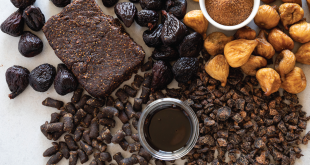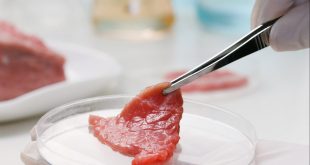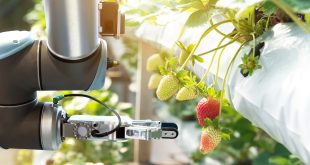Centre for Food provides students with first-hand experience
Text by Doug Wintemute
Surrounded by an orchard, greenhouses and vegetable fields, the Centre for Food (CFF) at Durham College in Oshawa, ON, is doing its part to redefine school field trips. By following the guiding concept of field-to-fork, the centre encourages its students to engage in the various sectors that converge within the food industry, having them gain a well-rounded appreciation for food and the many processes involved in bringing it to the plate.
“The idea with the Centre for Food was that this would be a centre within Durham region that brings the farming community, the dining community and the learning community together,” says David Hawey, CFF Chair and Professor of Culinary Management. “We want to have the opportunity to take students into the field and say, ‘this is how food grows, this is what goes into it and this is how you can benefit from it.’”
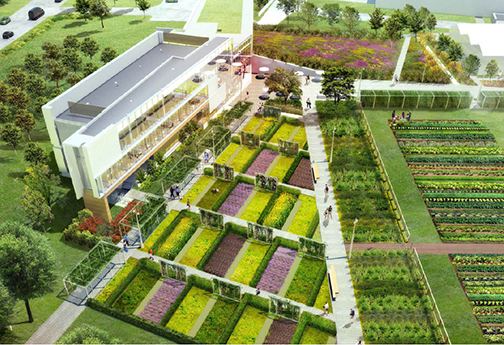 Within its new, state-of-the-art, 34,000-sq. ft. facility, the CFF promotes local food, sustainability (both in practice and design) and industry collaboration. The centre is proud of Durham region’s strong agricultural ties and tries to support its local farmers and producers wherever and whenever it can. In addition to that, the centre grows its own produce, something quite unique among other culinary schools.
Within its new, state-of-the-art, 34,000-sq. ft. facility, the CFF promotes local food, sustainability (both in practice and design) and industry collaboration. The centre is proud of Durham region’s strong agricultural ties and tries to support its local farmers and producers wherever and whenever it can. In addition to that, the centre grows its own produce, something quite unique among other culinary schools.
“Whereas some schools are looking at using local food, we’re actually producing our own,” says Hawey. “There are horticulture programs with decorative plants, but there 200 apple trees in our front yard that are growing; there are herb gardens as you walk up to the centre. From the main building, you walk through the fields, past the tomato plants and pepper plants and corn plants. You can feel more at one with food.”
Each room in the energy-friendly centre is built with flexibility, adaptability and transparency in mind. Open concept classrooms and kitchens feature transportable equipment, allowing for more versatility in the space and speak to the centre’s commitment to staying ahead of the ever-improving technological environment. But flexibility and adaptability are more than simply design concepts. A centre-wide dedication to collaboration provides students with an understanding of each stage in the food cycle, seen through to its fruition at Bistro 67, the CFF’s teaching-inspired restaurant.
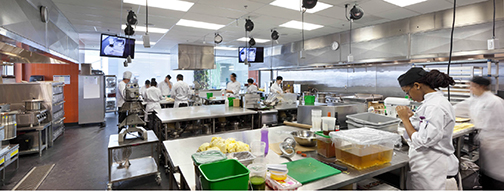
“The students that grow the food in the greenhouses starting in January and saw it get planted in our fields in the spring, also help to harvest it. Then it comes into the kitchens and our students cook it and serve it that night,” says Hawey. “From growing it, to cooking it, to serving it, we’re tying all of those programs together on three-and-a-half acres of land, to bridge the gap so that people understand what the other side is doing. And it’s all happening right here.”
 Canadian Food Business
Canadian Food Business
